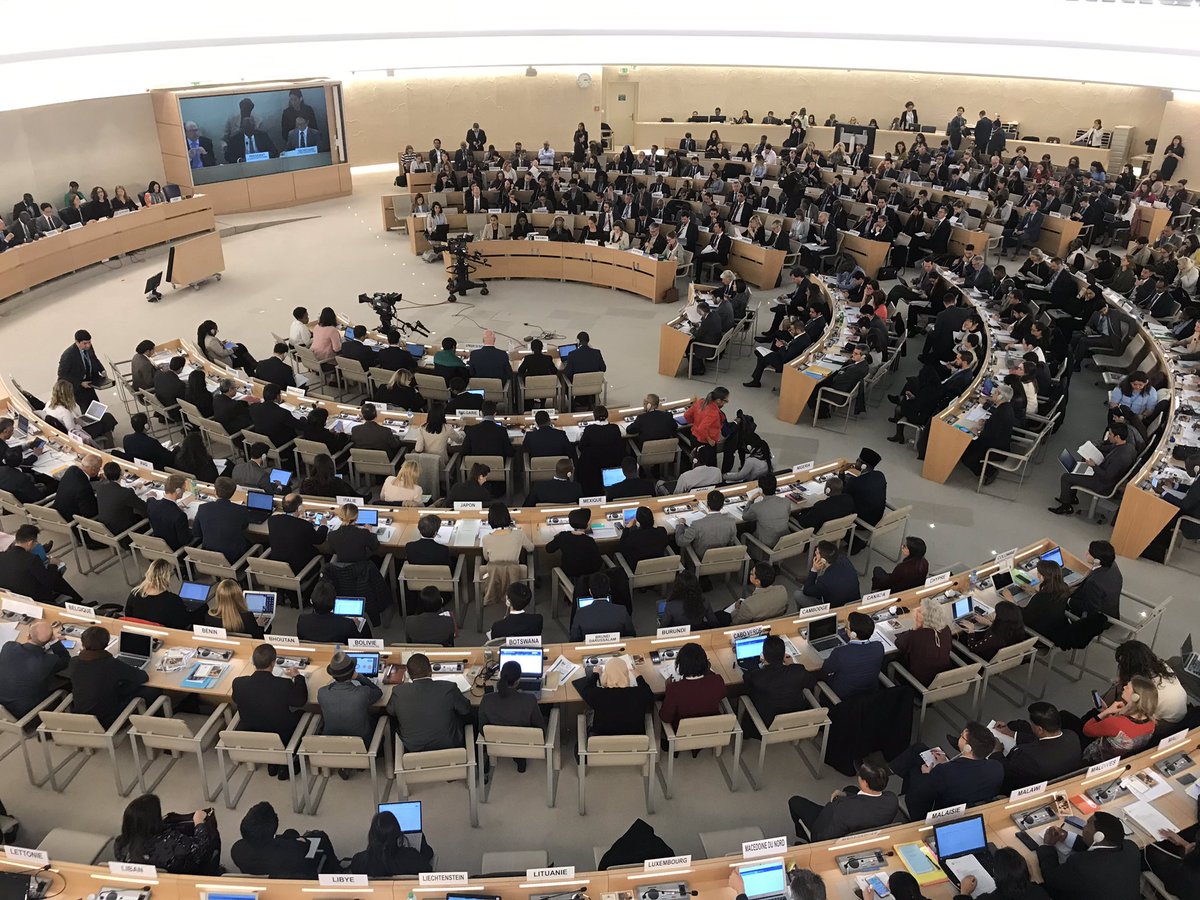
A report by the United Nations human rights chief warns of the “seeds of future violence and conflict” in Sri Lanka, as she called for member states to consider “asset freezes and travel bans” on Sri Lankan officials accused of human rights abuses.
The report, by UN High Commissioner for Human Rights Michelle Bachelet, says that she is “deeply concerned” by the situation in Sri Lanka, which represents “clear early warning signs of a deteriorating human rights situation and a significantly heightened risk of future violations, and therefore calls for strong preventive action”.
Commenting on the 2015 OHCHR investigation on Sri Lanka (OISL), which found the “total failure of domestic mechanisms”, the report concludes that member states can take “steps towards the referral of the situation in Sri Lanka to the International Criminal Court” and prosecute Sri Lankans accused of crimes in “before their own national courts”.
“I urge the international community to listen to the determined, courageous, persistent calls of victims and their families for justice, and heed the early warning signs of more violations to come,” Bachelet said.
“Given the demonstrated inability and unwillingness of Government to advance accountability at the national level, it is time for international action to ensure justice for international crimes. States should also pursue investigations and prosecution in their national courts – under accepted principles of extraterritorial or universal jurisdiction – of international crimes committed by all parties in Sri Lanka.”
#SriLanka's failure to address past violations has significantly heightened the risk of #HumanRights violations being repeated – New report highlights worrying trends. @MBachelet calls for international action to ensure justice for past crimeshttps://t.co/CCoyu9XImL pic.twitter.com/CxOiz2YQn6
— UN Human Rights (@UNHumanRights) January 27, 2021
“The Human Rights Council therefore is – once again – at a critical turning point in its engagement with Sri Lanka,” the report continues.
“The government has now demonstrated its inability and unwillingness to pursue a meaningful path towards accountability for international crimes and serious human rights violations, and signalled instead a fundamentally different approach which focusses on reparation and development, but threatens to deny victims their rights to truth and justice and further entrench impunity.”
Examining six broad trends in Sri Lanka - the militarization of civilian government functions, the reversal of Constitutional safeguards, political obstruction of accountability for crimes and human rights violations, majoritarian and exclusionary rhetoric, surveillance and obstruction of civil society and shrinking democratic space and new and exacerbated human rights concerns – the High Commissioner said she is “concerned these represent important early warning indicators that require the Human Rights Council’s urgent attention”.
The report notes the deep concern over “the increased use of ethno-nationalistic and majoritarian rhetoric and symbols by the President and other senior Government figures, which define public policies that appear to exclusively reflect the perceived interests of the Sinhala Buddhist majority, and with minimal consideration for minority communities”.
“Ethnic and religious minority communities are left behind and excluded in such official discourse, and often perceived and treated as posing a threat. Such an approach has serious negative implications for reconciliation, peacebuilding and religious tolerance, and carries the seeds of future violence and conflict.”
Read the full text of the report here.

Excerpts of the report were leaked by Sri Lanka’s Sunday Times last week, ahead of the UN Human Rights Council’s 46th session. Sri Lanka is due to be discussed at the council, where member states will decide on next steps with regards to accountability for mass atrocities committed during the final stages of the armed conflict, which ended in 2009.
Read more here: Leaked UN report highlights ICC referral, universal jurisdiction and sanctions on Sri Lanka

Tens of thousands of Tamil civilians were massacred during that final phase, which saw widespread sexual violence and the bombing of hospitals. Earlier this month, Tamil political parties, civil society organisations and victim-survivors groups united behind a common platform, calling for declaring that there is "no scope" for a domestic accountability mechanism within Sri Lanka and jointly called for an international accountability process, including a referral to the International Criminal Court to investigate the charge of genocide.
As diplomats and non-governmental organisations discuss next steps, human rights organisations lambasted calls for a “consensual resolution”, highlighting that Sri Lankan government has not shown any support for “an international process to end the cycle of impunity and advance accountability”.

